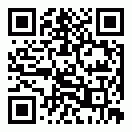Have just downloaded the Emerging Technologies: a framework for thinking (pdf report) developed by Education Au for the ACT Dept of Education on emerging technologies (infrastructures, classroom and teaching tools, and delivery devices) relevant to education and training in pre-school, school and VET sectors. Technologies are no longer considered "emerging" when they are considered "must haves" such as has happened with e-mail.
Major focus is on technologies directly relating to the delivery and enhancement of teaching and learning.
Extremely comprehensive listing with brief summaries on educational uses and benefits and issues for each and some references to case studies. Definitions (and abbreviations) are clearly provided.
The report includes DR and IP; equity & accessibility; pedagogy & ICT; open source; web services; Standards; LMS; personalisation; digital student report card systems; plagiarism detection; virtual classrooms; IWBs; e-Portfolios; PDAS; Tablet PCs; gaming technologies; assistive technologies; syndication RSS & ATOM; podcasts & vodcasts; blogs and wikis; VoIP; moblogs; P2P; Smart Cards; a decision making matrix and much more, including an extensive reference list.
An excellent resource for educators!
Friday, September 23, 2005
Wednesday, September 21, 2005
Trying out edublogs | WordPressMu blog
Opened an account at edublogs to trial edublogs. Same theme but southozzie. Haven't found much time to post here at this stage.
Edublogs has opened up a new community.
Edublogs has opened up a new community.
Tuesday, September 13, 2005
ScreenCastsOnline resource
ScreenCastsOnline is new online resource with a Mac bias. Podcasting (Pt 1) - Create your own Podcast caught my eye (covering a tutorial on using Garage Band). A popular resource, shooting up to position 99 in the iTunes Top 100 subscribed podcasts within a few weeks!.
Took the opportunity to update my iTunes to v5 on the weekend.
Took the opportunity to update my iTunes to v5 on the weekend.
Can Technology Enhance Learning? session
If you missed the live Elluminate session of Anne Bartlett-Bragg, "Can Technology Enhance Learning?" this week, visit the Learning Times Australia website to locate the archived version about learning in the age of connection. The focus was on future learning paradigms and the potential of social software. It's not about renovating learning with technology but radically reconceptualising learning culture in a new era of customisable learning environments.
Challenges and Issues rounded out a stimulating discussion.
You need to register (free) first to access the LTA community.
Challenges and Issues rounded out a stimulating discussion.
You need to register (free) first to access the LTA community.
21st century literacies
While exploring some references to podcasts, I came across this link on Kathleen Bennet's blog on 21st century literacies. It provides a succinct summary and direct link to the downloadable pdf report "Global Imperative" Report of the 21st Century Literacy Summit developed by Adobe Systems, the George Lucas Foundation and New Media Consortium.
The report highlights the "profound shift... taking place in the way people communicate and express themselves;"... a " new form of communication and self-expression occurs multimodally, incorporating visual and aural elements with textual elements, and an immediacy which itself is a dimension of the new language."
This shift is recognised as occurring in many countries across the globe and has profound implications for curriculum standards, teaching and learning, teacher professional development and accreditation.
The definition of 21st century literacy refers to ... "the set of abilities and skills where aural, visual and digital literacy overlap. These include the ability to understand the power of images and sounds, to recognize and use that power, to manipulate and transform digital media, to distribute them pervasively, and to easily adapt them to new forms."
The report recognises the inadequacy of schooling experiences and outdated curriculum for young, often disengaged people. Poor attendance and retention rates are part of the equation.
21st century literacy characteristics are deemed to be multimodal, encouraging creative fluency and interpretive facility, new grammar and rules of construction (using vocabulary and tools relevant to their experiences), interactive communication (in a web 2.0 connected learning environment) a sense of immediacy, ability to use media to evoke emotional responses and a potential to transform the way we learn.
The report makes for fascinating reading and poses the question, "What does a world that values 21st century literacy look like?"
Does this sit well in a climate of ever increasing basic skills testing and plain language reporting?
The report highlights the "profound shift... taking place in the way people communicate and express themselves;"... a " new form of communication and self-expression occurs multimodally, incorporating visual and aural elements with textual elements, and an immediacy which itself is a dimension of the new language."
This shift is recognised as occurring in many countries across the globe and has profound implications for curriculum standards, teaching and learning, teacher professional development and accreditation.
The definition of 21st century literacy refers to ... "the set of abilities and skills where aural, visual and digital literacy overlap. These include the ability to understand the power of images and sounds, to recognize and use that power, to manipulate and transform digital media, to distribute them pervasively, and to easily adapt them to new forms."
The report recognises the inadequacy of schooling experiences and outdated curriculum for young, often disengaged people. Poor attendance and retention rates are part of the equation.
21st century literacy characteristics are deemed to be multimodal, encouraging creative fluency and interpretive facility, new grammar and rules of construction (using vocabulary and tools relevant to their experiences), interactive communication (in a web 2.0 connected learning environment) a sense of immediacy, ability to use media to evoke emotional responses and a potential to transform the way we learn.
The report makes for fascinating reading and poses the question, "What does a world that values 21st century literacy look like?"
Does this sit well in a climate of ever increasing basic skills testing and plain language reporting?
Subscribe to:
Posts (Atom)




